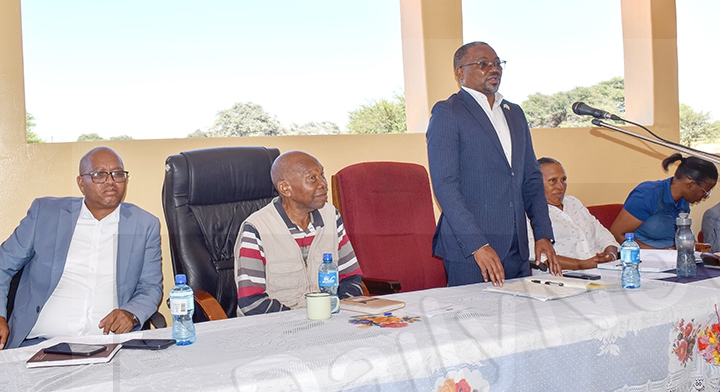Botswana leverages nuclear science
24 Jun 2025
Peaceful nuclear technologies offer significant benefits of improving lives, sustaining communities, and strengthening national resilience.
The benefits of such technologies are wide-ranging and include improving cancer diagnosis and treatment and enhancing agricultural production. It is for that reason that government is increasingly integrating such technologies into its national development agenda, said Acting Minister of Lands and Agriculture, Dr Edwin Dikoloti, on Monday during the African Regional Cooperative Agreement for Research, Development and Training related to Nuclear Science and Technology (AFRA) Technical Working Group meeting. Dr Dikoloti further said government was committed to harnessing the technologies in accordance with the highest standards of safety, security, and ethical conduct.
“We are working closely with the International Atomic Energy Agency (IAEA) to expand national capabilities, build human capital and strengthen the regulatory framework,” he said.
Dr Dikoloti, therefore, appreciated the AFRA meeting for providing a valuable platform for knowledge sharing, exchange of best practices and a collective effort to advance the Pan-African agenda on nuclear science. The AFRA is an intergovernmental agreement established as an initiative of African member states, who in 1988 requested IAEA’s support in creating a regional framework for cooperation in nuclear science and technology.
Dr Dikoloti, therefore, said the AFRA initiative stood as a pragmatic example of what African multilateral partnerships could achieve, adding that nuclear science and technology provided practical solutions to improving healthcare, boosting agricultural productivity, expanding access to energy, strengthening water security and protecting the environment.
Dr Dikoloti further said Botswana, which became a member state of IAEA in 2002, had benefited significantly from technical cooperation programmes, adding that the country strengthened its commitment to regional collaboration by acceding to the revised AFRA agreement in 2021.
Through collaboration with IAEA, Botswana opened its first public radiotherapy and cancer treatment centre at Sir Ketumile Masire Teaching Hospital in 2023, which marked a major milestone for the country, making cancer treatment more accessible and affordable for citizens.
“Prior to this, patients had to seek treatment either at private facilities or abroad, placing a significant financial burden on both families and the government,” said Dr Dikoloti.
He said the achievement was made possible through IAEA supported training of radiation oncologists, radiation therapists and other health professionals, as well as the provision of technical expertise. The IAEA representative, Mr Mickel Edwerd decried the challenge of funding for the AFRA project in Africa, a problem that he said would affect the attainment of the agency’s mandate. The five-days 36th AFRA technical working group meeting was attended by representatives from AFRA member states, who will, among others review updates on the implementation of recommendations from the previous meeting. ENDS
Source : BOPA
Author : Bonang Masolotate
Location : Gaborone
Event : Interview
Date : 24 Jun 2025





